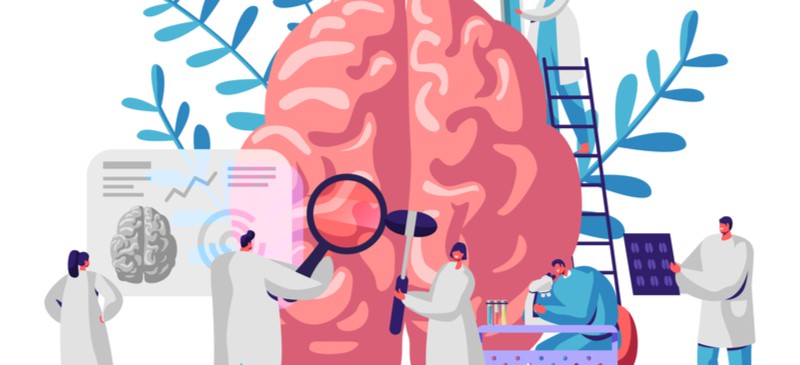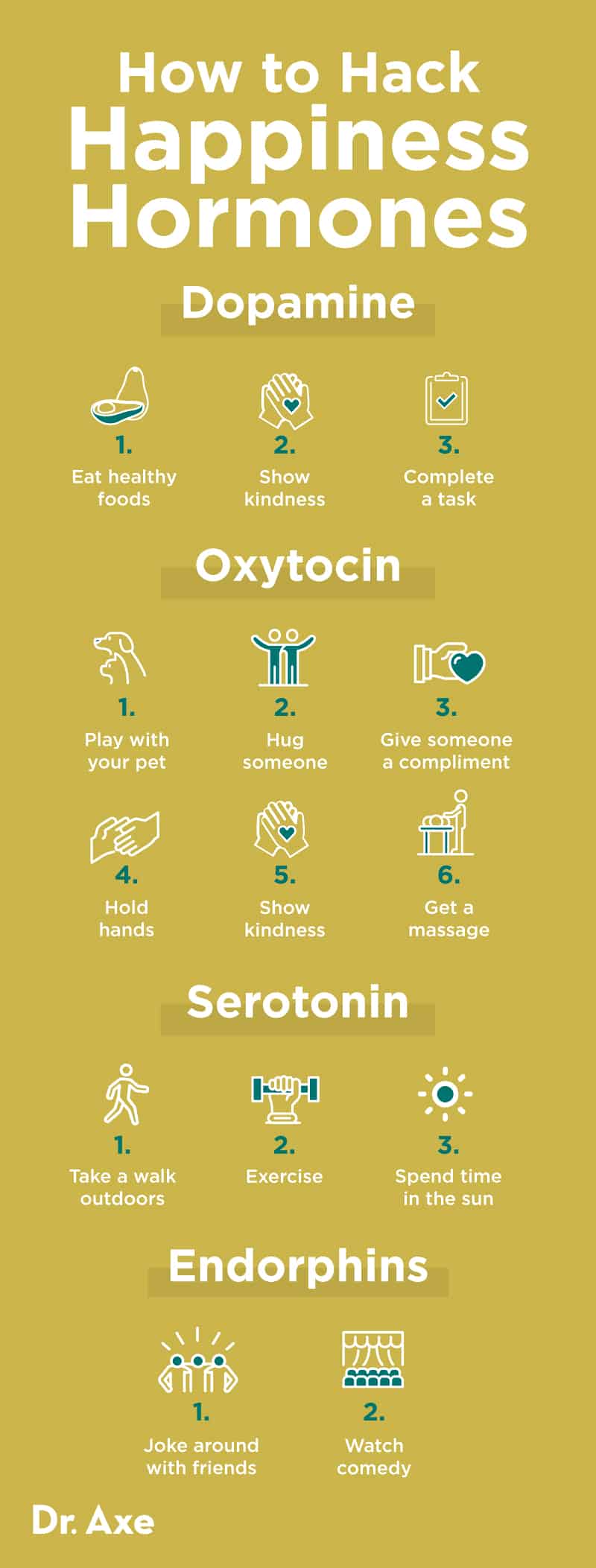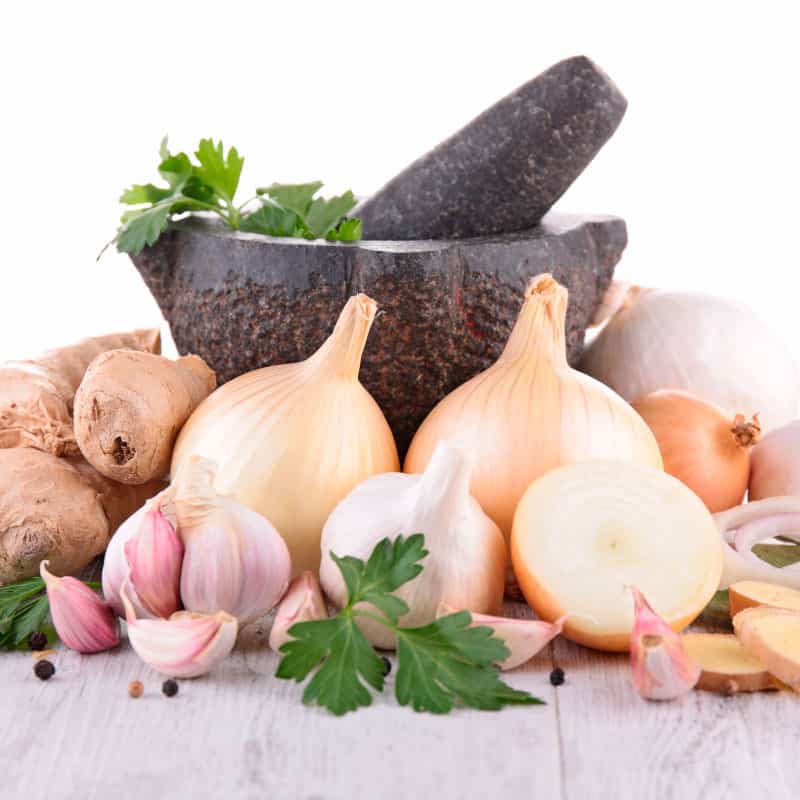This Dr. Axe content is medically reviewed or fact checked to ensure factually accurate information.
With strict editorial sourcing guidelines, we only link to academic research institutions, reputable media sites and, when research is available, medically peer-reviewed studies. Note that the numbers in parentheses (1, 2, etc.) are clickable links to these studies.
The information in our articles is NOT intended to replace a one-on-one relationship with a qualified health care professional and is not intended as medical advice.
This article is based on scientific evidence, written by experts and fact checked by our trained editorial staff. Note that the numbers in parentheses (1, 2, etc.) are clickable links to medically peer-reviewed studies.
Our team includes licensed nutritionists and dietitians, certified health education specialists, as well as certified strength and conditioning specialists, personal trainers and corrective exercise specialists. Our team aims to be not only thorough with its research, but also objective and unbiased.
The information in our articles is NOT intended to replace a one-on-one relationship with a qualified health care professional and is not intended as medical advice.
How to Hack Brain Chemicals to Boost Happiness
January 10, 2021

Most people understand that the brain regulates mood, but how exactly does that happen? While scientists continue to explore and learn about how brain function is linked to emotional health, they do know that brain chemicals play a critical role.
Our brain chemicals serve as messengers, sending signals to nerves throughout the brain that impact the way we feel.
Did you know that there are simple ways to boost the release and action of our happy hormones? It’s true — small actions can positively impact mood, energy and state-of-mind all because of feel-good brain chemicals.
What Are Brain Chemicals?
There are millions, or even billions, of chemical reactions occurring in the brain at any given moment. These reactions make up the dynamic system that controls mood, perception and more.
Neurotransmitters are the chemicals that send messages from neuron to neuron. Neurons (or nerves) are present throughout the brain and work to send and receive messages.
Researchers have found that electrical and chemical signals allow for communication within and between neurons. This is how the brain communicates with itself.
Neurotransmitters can be classified into two categories: excitatory and inhibitory. Excitatory messengers work to stimulate brain activity, while inhibitory messengers slow down the chemical reactions.
Types/Varieties
When it comes to understanding the chemical network within the brain, you need to know about the key players: dopamine, oxytocin, serotonin and endorphins. These brain chemicals, or “feel good hormones,” have a major impact on your mood, and they play a role in your mental, emotional and physical health.
When we feel happy, safe, proud or connected, our bodies release these brain chemicals.
1. Dopamine
Dopamine is known as the “feel good hormone” because it supports reward regulations in the brain. It plays a critical role in everyday behaviors, like how we feel, move and eat.
In moments of pleasure or reward, we get a rush of this brain chemical. On the flip side, when dopamine levels are too low, we can feel helpless and less motivated.
Dopamine is strongly linked to the brain’s reward system. It promotes feelings of reinforcement and motivation and modulates learning.
Research also links dopamine to behavioral effects on movement, cognition and timing. After finishing a task, being complimented or celebrating a small victory, you get a rush of dopamine.
2. Oxytocin
Oxytocin is known as the “love hormone” because it plays a role in many aspects of social bonding and sexual pleasure. The effects of oxytocin production are the opposite of what occurs after a cortisol release. We feel calmer, with a sense of joy and security.
Research indicates that oxytocin enforces pro-social behaviors and bonding. When we are excited about a social engagement, we actually get a burst of oxytocin, which makes us want to socialize even more.
Oxytocin also boosts our ability to react to stress in a healthy way.
3. Serotonin
Serotonin plays a role in a range of neuropsychological processes. As a brain chemical, it works to regulate mood, energy balance, motor function, pain perception, appetite and cardiovascular function.
Research on serotonin shows that the neurotransmitter is involved in the regulation of many key activities, including behaviors, mood and memory. This is why serotonin is used as a primary treatment for a number of disorders, including major depressive disorder, PTSD, anxiety, aggressive behavior, panic disorder and obsessive-compulsive disorder.
4. Endorphins
Endorphins are a group of chemical substances that are known as “opiate peptides.” Endorphins like enkephalins and dynorphins are associated with feelings of euphoria, pleasure, sexuality and pain relief.
Endorphins promote a sense of well-being and even feelings of bliss. On the other hand, low levels of endorphins are linked to emotional and physical pain, risk-taking behaviors, and an increased risk of addiction.
Endorphins serve as natural opiate peptide chemicals that have a lot in common with prescription anti-anxiety drugs and opiates. Studies show that when these brain chemicals are released, they help manage pain, provide a sense of euphoria and promote feelings of pleasure.
How to Hack Happiness Hormones
1. Eat Healthy Foods
Did you know that simply eating nourishing foods can promote the production of your happy hormones, like dopamine? In fact, some foods are called “brain foods” because they help release neurotransmitters.
Some of the best foods for your happy hormones include:
- good-quality protein
- beans
- nuts
- seeds
- healthy fats
- antioxidant fruits and veggies
2. Play With Your Pet
Playing with a pet can certainly boost your brain chemicals, especially oxytocin, which is your “love hormone.” If you have a pet, petting him or her or playing around is actually great for your own mood and well-being.
No pet? That’s what friends and neighbors are for!
3. Hug Someone
Want to boost your oxytocin naturally? Bring it in for the real thing.
Hugs bring on feelings of comfort, togetherness and joy.
Humans benefit from several hugs a day — and make sure they last about 20 seconds or longer. The “extended hug” is really what gets your love hormone going.
4. Take a Walk Outdoors
I’m sure this isn’t the first time you’re reading that walks outside are good for your health. It’s grounding and brings on feelings of peace and relaxation.
It does this by promoting the production of serotonin, which regulates your mood, energy levels and pain perception.
5. Exercise
Exercise or any form of physical activity is a great way to boost serotonin levels. This can be running, swimming, cycling, weight lifting, yoga and more.
Moving your body and getting your blood pumping leave you feeling energized and in a better mood.
6. Give Someone a Compliment
Did you know that giving someone a compliment can improve your mood too? Little gestures like this increase the release of oxytocin, making you feel loved, forgiving, protected and secure.

7. Joke Around With Friends
Laughing increases endorphins, the brain chemicals that are associated with pleasure, motivation and social connection. Simply joking around with friends can impact your mood and even help relieve pain.
8. Watch Comedy
If you aren’t in a social setting, you can still boost those endorphins by watching a comedy and LOLing. Any form of laughter is going to boost those brain chemicals and help improve feelings of sadness or isolation.
9. Hold Hands
What better way to increase oxytocin levels than to do a little hand-holding? Holding hands promotes the release of your love hormone and causes feelings of togetherness.
Oxytocin also makes you feel safe and happy, and it helps your body deal with stress properly.
10. Show Kindness
Small acts of kindness can lead to happiness and a sense of peace. That’s because it helps increase the work of brain chemicals like oxytocin and dopamine.
Do something simple, like holding the door for a stranger, getting involved in a fundraiser or even simply smiling at a co-worker.
11. Spend Time in the Sun
Ever wonder why you feel so relaxed after spending time in the sun? It helps increase serotonin, for starters.
Serotonin improves your mood, memory, digestion and wound healing, so don’t miss your daily dose of sunshine if you can help it.
12. Get a Massage
The sense of touch promotes the production of oxytocin and leaves you feeling less stressed, more connected and at peace. Getting a professional massage is a great way to boost your overall wellness, or asking a loved one for a short massage works too!
Massage therapy boosts happy hormones and even raises your immunity.
13. Complete a Task
You know that feeling you get when you complete a task? It’s a feeling of accomplishment, some excitement, a little warmth within.
That’s a boost of dopamine, your reward center saying you’ve done a great job. Whenever you complete a task, celebrate for a few seconds, and feel your neurotransmitters do their work.
Risks and Side Effects
These are easy and natural ways to boost your happy hormones, or brain chemicals. There are no risks or side effects to taking these small steps to promote a better mood and greater happiness.
If you try these actions but feel like you can’t get out of a slump, seek advice from your health care professional.
Conclusion
- Neurotransmitters are brain chemicals that send messages from one neuron (or nerve) to another. Millions, if not billions, of messages are sent throughout your brain at any given moment.
- The release of brain chemicals, or happy hormones, has a significant impact on your mood, perception, energy, digestion and more.
- The happy hormones that you can boost naturally are serotonin, dopamine, oxytocin and endorphins. Simple acts like laughing with friends, holding hands, eating a healthy meal and walking outdoors can help increase the levels of these feel-good hormones.










